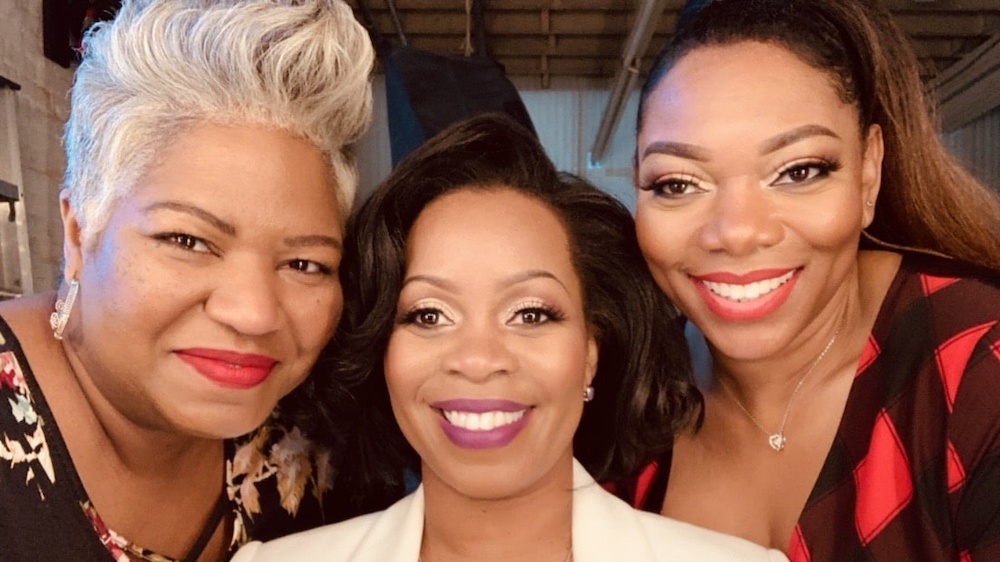If you’re interested in sharing your opinion on any cultural, political or personal topic, create an account here and check out our how-to post to learn more.
____
Occasionally, when I’m scrolling through social media, I’ll be jolted out of a semi-conscious state based on something I have seen or read. It is usually easier to write when this happens as the emotions resulting from such eye-popping content produce immediate fodder. Such is the case with this piece you are reading.
I was minding my business, perusing my Twitter timeline, when I saw a post about NBA player Patrick Patterson. Patterson, who is Black, responded to an Instagram user’s questioning of his choice to marry a white woman by referring to Black women as bulldogs.
We are an easy target, I’ll give Patterson that. While we are among the most educated groups in the country, we still earn 62 cents to every dollar a non-Hispanic white male earned in 2018. Black women are killed at a higher rate than any other group. Everything from Black women’s hairstyles, to our bodies and our names are politicized, criticized and held out as sources of derision. When pop culture elevates notions of beauty, Black women don’t usually top the list for what is deemed attractive. This is the cultural conditioning that Black women and men must navigate.
But Patterson missed the whole damn point. He could have pointed to cultural norms that influence what is and what is not deemed beautiful and attractive. He could have focused on his love for his wife specifically.
Alternatively, when asked about his attraction to white women, Patterson could have extolled the traits that he believes make some women more compatible to some categories of professions. Let’s not get it twisted: this is not a response that would have been accepted by most people, but it would have been better than comparing Black women to a breed of dogs. It would have been better than contributing to harmful stereotypes that may limit the pool of people interested in dating Black women. Instead, Patterson went to the bottom of the barrel, scraped it dry and no one should be surprised that he came up with grime.
To make matters worse, Patterson then told a Black woman that he didn’t want to go blind looking at Black women. If this isn’t next-level anti-blackness, I am not sure what is.
Patterson’s comments are more than disgraceful, they are dangerous. In an NPR CodeSwitch episode on dating, correspondent Leah Donnella observed:
“Dating is hard for lots of people, but for Black women in the United States, it can be uniquely horrible. For one thing, we're often expected to conform to white beauty standards. For another, we're up against a hold parade of racist stereotypes: that we're angry, overbearing, lazy, prudish and hyper-sexual and emasculating all at once. Oh, and we can't take a joke. Those stereotypes and expectations do two things. First, they limit the pool of people who are interested in dating Black women. And second, they often create situations where we, as Black women, try super hard not to fit into those categories. So rather than relaxing and trying to have fun with potential dates, we're caught up in the impossible game of trying to seem fun and ambitious and feminine and flirty … but not too flirty.”
Rather than focusing on the pernicious impact of anti-blackness, he joined the cohort of racist trolls who advance lazy stereotypes rather than considering the societal factors that influence the root of attraction. We live in a world where white is presumed right. We live in a world where proximity to whiteness is rewarded and highly regarded. I don’t have an issue with any man being married to a white woman. I have an issue with Black men who specifically refuse to date Black women: women belonging to the same group as the women who birthed them. I have an issue with Black men who believe that having a white wife somehow erases their blackness.
My problem with Patterson is that he had to make us, as in Black women, wrong in order to make himself and other Black men who choose to date white women right. A Black woman birthed him, yet he’s comfortable calling Black women, bulldogs. His is the same type of thinking that is used to bully Black women into silence and submission. Why challenge injustice if you must worry about the labels cast upon you, or a ball-player openly and without shame, comparing you to dogs?
His is the type of thinking that creates an environment where abusers who prey on Black women — R. Kelly comes to mind — get a pass, which permits them to get away with their alleged abuse for so long.
Patterson issued an apology to the Instagram user that he was communicating with but said nothing directly to the scores of Black women he likened to dogs. Apparently, he didn’t think that we were worthy of an apology.
So, let me issue the apology Patterson should have given:
Dear Black Women,
I am an idiot. I allowed my self-hatred to impact you. Worse still, I joined the chorus of people dumping on you, rather than lifting you up. I apologize that my anti-blackness impacted you. This is my work to do and you are not to blame for my inability to look upon myself with love and compassion. Again, my deepest apologies.
Signed,
A Black man on a journey to respect Black women.
____
Jennifer R. Farmer is a writer, trainer and activist communicator. She works with executives and celebrities committed to social good. She is the author of “Extraordinary PR, Ordinary Budget: A Strategy Guide.” Follow her on Instagram or Twitter using @pr_whisperer.
